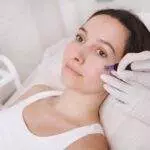A lot of training nurses, doctors, and health care professionals are looking at a workplace that has suddenly become a lot more dangerous. As such, many are ready and willing to do what they can to help, even at some personal risk.
However, there are those who are also concerned about their family, especially those who might be especially vulnerable to catching infectious viruses. For those people, here are some careers that don’t necessarily involve working directly with patients dealing with infectious diseases. You can think of becoming a phlebotomist, dietician, or you can go into the dentalcare field. There are online courses you can take to get Phlebotomy Technician PBT (ASCP) Certification. Read this article to know more.
Telemedicine
A lot of people are working remotely these days, which means reducing their risk of coming into contact with people, at all. The same goes for those in health care. Telemedicine is the practice of providing medical services remotely, rather than face-to-face. As such, it can involve prescribing medicine online, or even performing examinations and offering diagnoses with the help of webcams. It can also involve using health care technology such as fitness trackers to offer health advice to clients. Telemedicine in healthcare offers convenience and accessibility, allowing patients to receive medical care from the comfort of their own homes, eliminating the need for in-person visits and travel. Additionally, telemedicine helps to reduce healthcare costs, as virtual consultations can be more cost-effective compared to traditional in-person visits.
Specializing
A lot of general practitioners, family doctors, and pediatricians will soon be dealing with a lot more care directly related to the coronavirus. However, by choosing a medical or surgical specialty that sees you dealing with a very specific kind of condition, you may be able to remove some of that risk. This includes some of the most highly paid positions, such as plastic surgery and radiology. However, these roles can also be highly competitive. One that is slightly more flexible, even if not the highest paid, is a rewarding career in neurology. This is a field of medicine specializing in disorders of the brain and nervous system.
Administration
The medical industry is one of those that offer the best job security around, and right now they are considered essential workers so they are much less at risk of getting laid off. If you’re looking for a secure career, you may want to look at the more administrative side of the system that doesn’t put you in direct contact with many people. This can include working as a medical transcriptionist, in billing and coding, or helping with health care technology and systems. There are plenty of people who play an important role in indirectly supporting the system.
Dieticians and nutritionists
Another job that doesn’t require as much hands-on work with clients, but allows you to provide the long-term care and help towards wellbeing that attracts so many people to the industry is to become a dietician or a nutritionist. These jobs are all about helping people develop a knowledge of food and nutrition that allows them to form better and healthier eating habits. It can be done to help people improve their health more generally, but can also see you assisting those with specific dietary needs or physical conditions.
There’s nothing wrong with prioritizing your safety while choosing a job. There’s a decent chance that anyone working in the health care industry may, at some point, have to deal with COVID-19, but these roles may mitigate your risks.














